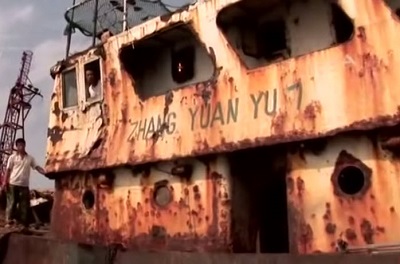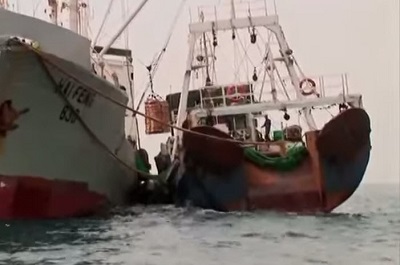U.S. Sets Timetable for Seafood Fraud Action
The U.S. Presidential Task Force on Illegal, Unreported, and Unregulated (IUU) Fishing and Seafood Fraud released an action plan on March 15 that articulates an aggressive timetable for taking steps to curtail the problem.
“The Obama Administration is committed to working to ensure that America’s fishing industry remains the heart and soul of coastal communities across the country,” said U.S. Deputy Secretary of Commerce Bruce Andrews. “The steps the United States has taken to be a leader in environmental stewardship are paying off. However, our nation's fisheries remain threatened by illegal, unreported, and unregulated fishing and seafood fraud, which negatively affects our markets. The Task Force’s new strategic plan will aggressively implement recommendations to guarantee that U.S. fishing fleets remain competitive in the global economy.”
 According to NOAA, in 2013, U.S. fishermen landed 9.9 billion pounds of fish and shellfish worth $5.5 billion. Globally, IUU fishing causes significant economic losses, fueling trafficking operations while undermining economic opportunities for U.S. fishermen and others engaged in legal fishing.
According to NOAA, in 2013, U.S. fishermen landed 9.9 billion pounds of fish and shellfish worth $5.5 billion. Globally, IUU fishing causes significant economic losses, fueling trafficking operations while undermining economic opportunities for U.S. fishermen and others engaged in legal fishing.
“Illegal fishing and seafood fraud affect the American public and people around the world,” said State Department Under Secretary Cathy Novelli. “The plan we are releasing today puts us on course to tackle these complex global challenges, with a new traceability program at its heart. It also gives new urgency to our work towards the strongest possible international tools – including ratification of the Port State Measures Agreement, which will ensure illegal fish cannot reach the global market. We are working closely with our partners in the United States and around the world to bring the full range of resources to the table.”
The plan identifies actions that will strengthen enforcement, create and expand partnerships with state and local governments, industry, and non-governmental organizations, and create a risk-based traceability program to track seafood from harvest to entry into U.S. commerce.
The plan also highlights ways in which the U.S. will work with our foreign partners to strengthen international governance, enhance cooperation, and build capacity to combat IUU fishing and seafood fraud. This includes the administration’s work to secure historic and enforceable environmental provisions in the Trans-Pacific Partnership, a regional trade agreement that includes countries that together account for approximately one-quarter of global marine catch and global seafood exports.
Key action items include:
• Conclude in 2015 the Trans-Pacific Partnership (TPP) negotiations that include commitments to combat IUU fishing and first ever provisions to eliminate harmful fisheries subsidies.
• Work with Congress to enact implementing legislation for the Port State Measures Agreement and receive commitments from at least 14 additional foreign countries to join the Agreement.
• Work with international governments, regional fisheries management organizations and others to advance best practices for: the monitoring, control, and surveillance of international fisheries; the implementation of port State controls; and compliance monitoring.
 • Implement a strategy to optimize the collection, sharing, and analysis of information and resources to prevent IUU or fraudulently labeled seafood from entering U.S. commerce by September 2015.
• Implement a strategy to optimize the collection, sharing, and analysis of information and resources to prevent IUU or fraudulently labeled seafood from entering U.S. commerce by September 2015.
• Implement recommended adjustments to U.S. tariff codes to properly identify seafood products in trade by December 2015.
• Prioritize combating seafood fraud and the sale of IUU seafood products for joint federal/state enforcement operations and investigation and prosecution of cases in 2015.
• Enhance collaboration with interested stakeholders on specific IUU fishing or seafood fraud concerns including through an annual, public, in-person forum of interested stakeholders and the creation of a public web portal to relevant information held by agencies.
• Define the types of information to be collected along the seafood supply chain from harvest or farm to entry into the U.S. market and the ways in which this information will be collected by October 2015.
• With input from our partners through a public engagement process, identify the species to which this system will first apply based on how at risk they are of being the product of IUU fishing or seafood fraud by October 2015.
• Finalize rulemaking to collect additional information on species at risk as a requisite of entry into U.S. commerce by September 2016.
• Determine how information within the traceability system – including species, geographic origin, and means of production – can be shared with consumers.
• By December 2016, the Task Force will identify the next steps in expanding the program to all seafood entering U.S. commerce, taking into careful consideration input from stakeholders, as well as the experience from the first year.
The plan is available here.
